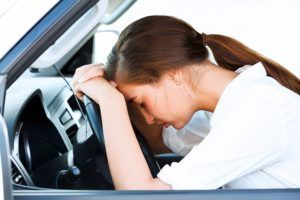 After a night of drinking, we usually just want to head home and crash for the night. Since the body needs time to process any amount of alcohol, the number of drinks a person consumes is directly related to the amount of sleep needed. Unfortunately, a person may decide that his or her car is the perfect spot for sleeping off a night of drinking before driving home. But this is rarely the best decision, as it comes with the risk of a DUI.
After a night of drinking, we usually just want to head home and crash for the night. Since the body needs time to process any amount of alcohol, the number of drinks a person consumes is directly related to the amount of sleep needed. Unfortunately, a person may decide that his or her car is the perfect spot for sleeping off a night of drinking before driving home. But this is rarely the best decision, as it comes with the risk of a DUI.
Even if a vehicle is not in operation, a person with a blood alcohol concentration (BAC) of over .08 percent (or lower, in Colorado or Maryland) should not be behind the wheel, even asleep. In many states, that is probable cause for law enforcement to assume that the person has already driven the vehicle while intoxicated, or has the intention to drive after drinking. Even a person who had the best of intentions can be charged and convicted of drunk driving, resulting in an ignition interlock and other consequences. In fact, under these circumstances, the only way to escape a DUI charge could involve a mechanic’s report that a vehicle was absolutely inoperable.
If a person is under the influence of alcohol and still manages to get out on the road, there is also a danger that the person will fall asleep while driving.
Intoxicated drivers aren’t known to make the best decisions, which is why the laws and assumptions about a person behind the wheel of a vehicle are a safety issue. Sleeping off a night of drinking may be a natural instinct, but even after a quick nap a person is probably still too drunk to drive. If a night of drinking is part of the plan, be sure that plan also includes a safe way home, without stopping for sleep before you get there.

 Shocking DUI Stories: Naked Nebraska DUI
Shocking DUI Stories: Naked Nebraska DUI